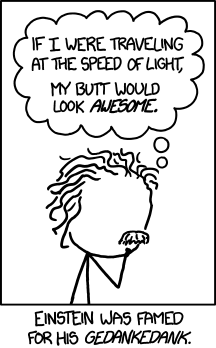Officially, Google killed Reader because “over the years usage has declined”.1 I believe that statement, especially if API clients weren’t considered “usage”, but I don’t believe belive that’s the entire reason.
The most common assumption I’ve seen others cite is that “Google couldn’t figure out how to monetize Reader,” or other variants about direct profitability. I don’t believe this, either. Google Reader’s operational costs likely paled in comparison to many of their other projects that don’t bring in major revenue, and I’ve heard from multiple sources that it effectively had a staff of zero for years. It was just running, quietly serving a vital role for a lot of people.
This is how RSS and Atom have always worked: you put in some effort up front to get the system built,2 and in most instances, you never need to touch it. It just hums along, immune to redesigns, changing APIs, web-development trends, and slash-and-burn executives on “sunsetting” sprees.3
RSS was the original web-service API. The original mashup enabler. And it’s still healthy and going strong.
Mostly.
RSS grew up in a boom time for consumer web services and truly open APIs, but it especially spread like wildfire in the blogging world. Personal blogs and RSS represented true vendor independence: you could host your site anywhere, with any software. You could change those whenever anything started to suck, because there were many similar choices and your readers could always find your site at the domain name you owned.
The free, minimally restricted web-service-API era has come and gone since then. As Jeremy Keith wrote so well a few weeks ago (you should read the whole thing), those days aren’t coming back:
But [Facebook] did grow. And grow. And grow. And suddenly the AOL business model didn’t seem so crazy anymore. It seemed ahead of its time.
Once Facebook had proven that it was possible to be the one-stop-shop for your user’s every need, that became the model to emulate. Startups stopped seeing themselves as just one part of a bigger web. Now they wanted to be the only service that their users would ever need… just like Facebook.
Seen from that perspective, the open flow of information via APIs — allowing data to flow porously between services — no longer seemed like such a good idea.
(He also addresses RSS. Read it. I’ll wait here.)
This isn’t an issue of “openness”, per se — Twitter, for instance, has very good reasons to limit its API. You aren’t entitled to unrestricted access to someone else’s service. Those days are gone for good, and we’ll all be fine. We don’t need big web players to be completely open.
The bigger problem is that they’ve abandoned interoperability. RSS, semantic markup, microformats, and open APIs all enable interoperability, but the big players don’t want that — they want to lock you in, shut out competitors, and make a service so proprietary that even if you could get your data out, it would be either useless (no alternatives to import into) or cripplingly lonely (empty social networks).
Google resisted this trend admirably for a long time and was very geek- and standards-friendly, but not since Facebook got huge enough to effectively redefine redefined the internet and refocus Google’s plans to be all-Google+, all the time.4 The escalating three-way war between Google, Facebook, and Twitter — by far the three most important web players today — is accumulating new casualties every day at our expense.
Google Reader is just the latest casualty of the war that Facebook started, seemingly accidentally: the battle to own everything.5 While Google did technically “own” Reader and could make some use of the huge amount of news and attention data flowing through it, it conflicted with their far more important Google+ strategy: they need everyone reading and sharing everything through Google+ so they can compete with Facebook for ad-targeting data, ad dollars, growth, and relevance.
RSS represents the antithesis of this new world: it’s completely open, decentralized, and owned by nobody, just like the web itself. It allows anyone, large or small, to build something new and disrupt anyone else they’d like because nobody has to fly six salespeople out first to work out a partnership with anyone else’s salespeople.
That world formed the web’s foundations — without that world to build on, Google, Facebook, and Twitter couldn’t exist. But they’ve now grown so large that everything from that web-native world is now a threat to them, and they want to shut it down. “Sunset” it. “Clean it up.” “Retire” it. Get it out of the way so they can get even bigger and build even bigger proprietary barriers to anyone trying to claim their territory.
Well, fuck them, and fuck that.
We need to keep pushing forward without them, and do what we’ve always done before: route around the obstructions and maintain what’s great about the web. Keep building and supporting new tools, technologies, and platforms to empower independence, interoperability, and web property ownership.

 But then some months ago I received a copy of Sara and Hugh Forte's inspiring Sprouted Kitchen cookbook (you know their blog, right?), and among the recipes I was quick to tag (the Honey Mustard Broccoli Salad, the Crunchy Curried Chickpeas, the Corn Cakes with Cherry Compote...) was Sara's formula for Granola Protein Bars, on page 154.
But then some months ago I received a copy of Sara and Hugh Forte's inspiring Sprouted Kitchen cookbook (you know their blog, right?), and among the recipes I was quick to tag (the Honey Mustard Broccoli Salad, the Crunchy Curried Chickpeas, the Corn Cakes with Cherry Compote...) was Sara's formula for Granola Protein Bars, on page 154.











